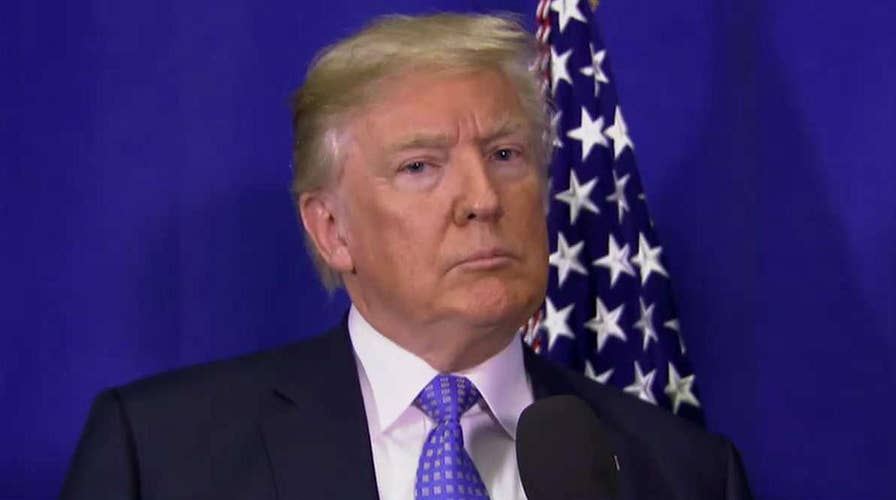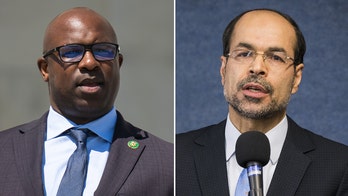Trump on health care: We have the votes, but not enough time
The president goes one-on-one with Pete Hegseth to discuss the NFL controversy, Republicans' tax plan and how to move forward on repealing ObamaCare.
The White House is putting the finishing touches on an executive order that would expand health care options with allowing individuals to band together and buy insurance beyond their state lines, according to reports.
The order, which is expected to be signed by President Trump next week, will be aimed at expanding insurance options for Americans who buy their own coverage or receive it through working at a small company, according to the Wall Street Journal. The new options would broaden instructions for agencies to explore loosening regulations and lowering premiums.
President Donald Trump has long asserted that selling insurance across state lines would trigger competition that brings down premiums for people buying their own policies. He is expected to sign the executive order next week, likely on Thursday, a senior administration official told The Associated Press on Sunday.
Under the president's executive action, membership groups could sponsor insurance plans that cost less because — for example — they wouldn't have to offer the full menu of benefits required under the Affordable Care Act, also called "Obamacare." It's unclear how the White House plans to overcome opposition from state insurance regulators, who see that as an end-run to avoid standards.
"There are likely to be legal challenges that could slow this effort down," said Larry Levitt of the nonpartisan Kaiser Family Foundation.
The order was being drafted as Trump expressed his willingness to work with Democrats on health care after Republicans were unable to approve legislation that would have repealed and replaced "Obamacare."
The president said Saturday that he had spoken to Senate Democratic leader Chuck Schumer of New York to see if Democrats would want to collaborate with him on improving health care. He told reporters before departing for a North Carolina fundraiser that he was willing to consider a "temporary deal" and referred to a popular Republican proposal that would have the federal government turn over money for health care directly to states in the form of block grants.
Schumer said through a spokesman Saturday that Trump "wanted to make another run at 'repeal and replace' and I told the president that's off the table."
Schumer said if Trump "wants to work together to improve the existing health care system, we Democrats are open to his suggestions."
It was unclear if the expected White House order could lead to changes sweeping enough and quick enough to help several million consumers exposed to higher premiums next year for their individual health insurance plans.
It typically takes government agencies several months to carry out presidential directives, since they generally must follow a notice-and-comment process. Sign-up season for individual health insurance starts Nov. 1 and ends Dec. 15.
"Whether this executive order could impact the 2018 market is yet to be seen, since the health plans have created and priced their 2018 products already, and open enrollment begins in just three weeks," health industry consultant Robert Laszewski said.
While nearly nine million consumers who receive tax credits under the Obama-era law are protected from higher premiums, about 6.7 million other customers with individual coverage get no subsidies and will bear the full brunt of cost increases that reach well into the double digits in many states.
Many in this group are solidly middle-class, including self-employed business people and early retirees. Cutting premiums for them has been a longstanding Republican political promise.
Similar alternatives have been promoted by Kentucky Sen. Rand Paul, a Republican holdout during the health care debate. Senate leaders didn't bring the latest GOP health care bill to a vote because they lacked the votes to pass it.
Click for more from The Wall Street Journal.
The Associated Press contributed to this report.





